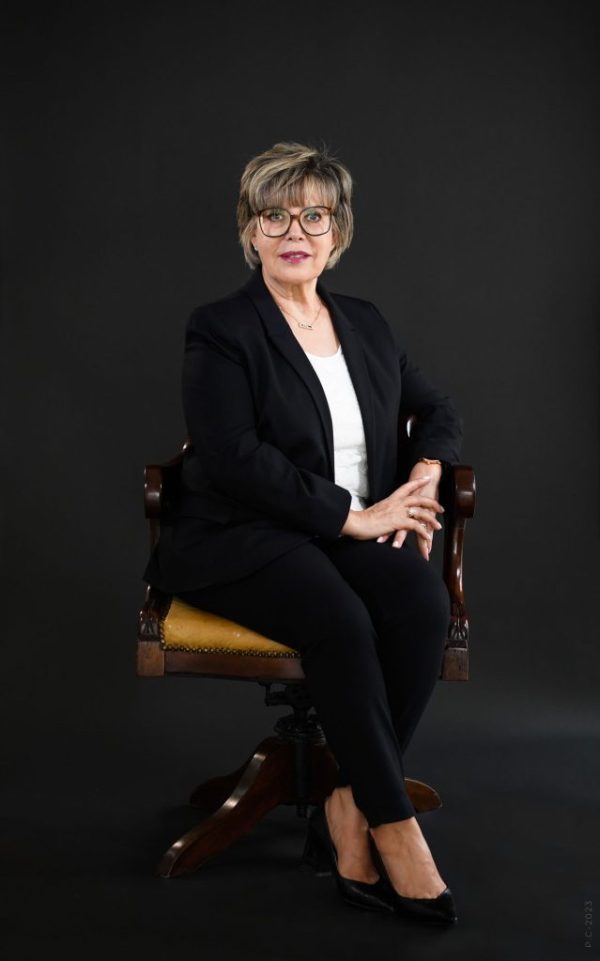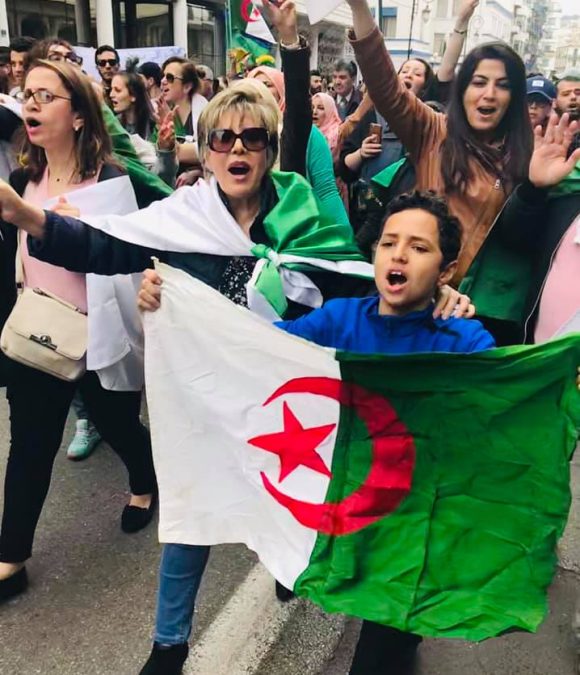
BIOGRAPHY OF THE PRESIDENT
Zoubida Assoul, born in 1956 in Tebessa, into the Ouled Sidi Abid family of the chorfa of Bir El-Ater, daughter of Assoul Tebessi, a religious scholar, is an Algerian lawyer and politician. Since 2013, she has been the president of the Union for Change and Progress (UCP) party.
Education
In 1976, Zoubida Assoul obtained a bachelor’s degree in Literature in Khenchela. She opted for studies in law and enrolled at the University of Constantine, where she graduated in 1980 with a Bachelor’s degree in Private Law. She subsequently successfully passed the judiciary examination. During her university studies, Zoubida Assoul also played volleyball.
Career
In 1982, Zoubida Assoul became a judge in family court at the age of 26, where she encountered issues related to women’s conditions.
In 1987, she became the first woman to be appointed as a senior executive at the Ministry of Justice. She held the position of Deputy Director of the Department of Child Protection before becoming an inspector within the same ministry until 1993. In 1994, she was appointed as the head of studies at the General Secretariat of the Government.
Political background
To address the « legislative void » and ensure the « continuity of the state » following the interruption of the second round of parliamentary elections scheduled for January 16, 1992, Algeria created ad hoc institutions to fill the power vacuum, including the HCE, CCN, and later the CNT. The High Committee of State (HCE), a presidential council assuming the role and prerogatives of the head of state after the resignation of Chadli Bendjedid as President of the Republic, decided to appoint a « Designated Parliament. » This led to the creation of the National Consultative Council (CCN), presided over by Redha Malek, former Minister of Information and Culture and one of the negotiators of the Evian Accords on the FLN side. He later became Minister of Foreign Affairs and a member of the HCE after the assassination of his fellow FLN comrade, Mohamed Boudiaf. At the end of January 1994, the HCE and CCN were dissolved.
A National Consensus Conference organized by the leader of the historic Wilaya IV, Youcef El Khatib, who was then presiding over the National Dialogue Commission (CDN), took place. It was at this time that Zoubida Assoul entered the political scene. This conference resulted in the creation and installation, on May 18, 1994, of the National Transition Council (CNT), a more effective version than the CCN, with a mandate of three years. It consisted of 192 members, including only about a dozen women, among them Zoubida Assoul. She worked closely with the leader of the historic Wilaya IV. The objective of the CNT was not only to fulfill the duties of a Parliament but also to seek and find solutions to create the most favorable conditions for resolving the crisis. Within the CNT, Zoubida Assoul served as the rapporteur of the Commission on Legal Affairs until the end of the Council’s mandate in 1997, with the organization of parliamentary elections. After the end of her term in the CNT and following her two refusals to join the RND and the FLN, Zoubida Assoul was sidelined the same year from the Ministry of Justice and retired at the age of only 41.
In 2000, she became an advisor to the President of the Council of the Nation, the upper house of Parliament.
In 2006, she was elected president of the NGO Network of Arab Women Jurists. On September 29, 2012, she founded her political party, the Union for Change and Progress (UCP). In 2015, she declared that her role model was Houari Boumédiène.
In 2014, Zoubida Assoul met with Prime Minister Ahmed Ouyahia as part of consultations for a new constitution. On this occasion, she emphasized the need to limit the number of presidential terms.
She also served as the spokesperson for the Mouwatana (Citizenship-Democracy) movement, created on June 6, 2018, along with politicians such as Soufiane Djilali, Ahmed Benbitour, and Ali Benouari, as well as activist Amira Bouraoui and human rights lawyer Salah Debbouz. This movement brought together two political parties: Jil Jadid and UCP. Within this movement, she campaigned against Abdelaziz Bouteflika’s fifth term and advocated for a state of law and a radical break with the current Algerian regime.
In February 2019, as part of the Algerian presidential election scheduled for April 18, 2019, she announced the UCP’s support for the candidacy of Ali Ghediri (suspected to be the candidate of General Toufik) and stepped down as the spokesperson of Mouwatana.
On March 27, 2021, Zoubida Assoul announced that the UCP would boycott the Algerian legislative elections of 2021.
On April 22, the UCP received a warning from the Ministry of Interior, which appeared to be an attack against political parties of the Hirak movement, such as the PST, PT, and MDS, who also received similar warnings.
The Council of State dismissed the Ministry of Interior’s action against the UCP, and the party retains its headquarters and recognition.

Hirak:
On Friday, February 22, 2019, tens, hundreds, thousands, and eventually millions of Algerians, men and women of all ages, ideologies, and regions of Algeria, took control of their destiny. Zoubida Assoul was in the streets with the Algerian people who came out in political demonstrations demanding a radical change in the regime.
She called for more marches and joined the Mouwatana activists on Sunday, February 24, where she was detained by the police. Zoubida Assoul was held at the police station overnight. Upon her release, she was determined to defend the young Algerians as a lawyer.
Following the ban on the Amazigh flag in the protests and the subsequent arrests, she provided pro bono representation for over 150 prisoners of conscience in more than 40 wilayas (provinces).
She then defended political detainees such as Mohamed Tadjadit, Nacer Meghnine, El Hadi Laassouli, Nabil Mellah, and others.
During the trial of detainee Tadjadit, she compelled the judge to display the screen so that everyone in the courtroom could see it.
In February 2022, Zoubida Assoul proposed a roadmap by calling on Abdelmadjid Tebboune to overhaul the constitution and hold early presidential elections. The president of the UCP believes that the reasonable solution to the current political crisis in Algeria lies in organizing early presidential elections in 2022.
In April 2022, she was summoned by the police for participating in an official meeting with diplomats accredited by the Algerian state. She responded with a press release affirming that Algeria cannot live in autarky and that she will always defend Algeria’s sovereignty.
